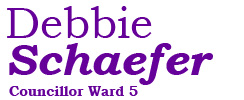On January 24 Council meeting agenda there is the staff report on the King Climate Action Plan (KCAP); there will be presentation which I recommend hearing/seeing. The report recommends endorsement of the KCAP subject to minor revisions made to incorporate feedback received at the meeting. The report articulates the rationale for the plan without mincing words: “The meaningful action we all must take to prevent the global temperature rise and curb emissions is as important as any other threat we as humans face.” The scope of the action plan is to reduce the emissions occurring from activities in King Township which amount to~250,000 tonnes of CO2 equivalent (CO2e) on an annual basis (2018) which is inclusive of 1,300 tonnes that are generated by the municipalities’ operations. The plan for the latter has been identified earlier as part of the Energy and Conservation Plan; the KCAP on the Jan. 24 agenda is about the emissions other than what is in the municipal scope of responsibility. Yes, Canada’s share of the total is small; but as Canada is one of the highest emitters globally on a per capita basis we cannot deny our responsibility.
We are at the very beginning of our necessary journey. I regret that we are not being bold. We declared a climate emergency on July 8, 2019; we have our Corporate Energy and Conservation Plan (2019-2023) with actions to reduce emissions by 35% by 2030. When the latter was approved there was criticism that it was an inadequate goal and should be 45%. I think our goal continues to be inadequate. Per the 2018 IPCC report if we want to stay below 1.5 C of warming emissions versus 2005 need to be reduced by 50% by 2030 and achieve zero emissions by 2050. But, as it is the current corporate goal there is not going to be appetite to change it now. I do not want to delay the work required by the actions of KCAP with debate about the goal. We can could consider a higher goal in 2 years.
The emissions inventory is very interesting. One thing that struck me while reading it was that in each sector (e.g. residental),the tools, the way to reduce the emissions are identified. It’s clear that we do know how to do it i.e. to reduce emissions; we just need to get on with it. The KCAP has identified seven building blocks; and within each one there are actions and a recommended timeline for doing the actions.
- The electric revolution
- Our natural systems
- Sustainable movement
- Aligned King
- Idyllic community of low carbon communities
- Tomorrows energy& infrastructure
- Local empowerment & culture
It’s important that we don’t start to think of each of the sectors as being independent; they are very interconnected. The local empowerment and culture sector is vital and needs to be resourced in a manner that reflects how important it is. Every individual,every business in King needs to understand how they both generate emissions by there choices and how they could reduce those emissions. An obvious example: 13% of the emissions are from our residences. There is an action plan about programs to incent retrofitting of our leaky homes. There are already pilot programs for assisting homeowners with the capital required but if homeowners don’t understand that their homes are leaking i.e. emitting emissions, wasting heat and electricity they won’t apply.
The KCAP is very clear that achieving even our modest 35% goal is going to take an infusion of capital. As reviewed in the plan there are many grant possibilities from both both levels of government and other agencies and organisations. We can’t make the applications until we have a plan and agree what we want to work on and our 2023 budget and beyond must include this plan.
The KCAP suggests that there will be annual reports to council. I do not agree with this. Until Council staff and our constituents are talking regularly about climate action and integrating it into their daily lives this needs to be more than annual reports.
As always if you want to make a deputation and or submit comments please contact clerks@king.ca by noon on January 24.

If we knew what to do/focus on, bit by bit, step by step, it would be helpful. Just like the messaging for covid we need consistency, persistency, and leadership. Just like campaigns to wear seat-belts, recycle, stop smoking, we need communications – that may take a lot of money, but it’s money well spent to educate those of us who want to do the right things, the most effective things to avert catastrophe. I would suggest hiring experts (advertising agencies? psychologists? behaviour change agents), in how to launch educational campaigns that succeed in getting people to buy in and make those day to day changes in their lives.